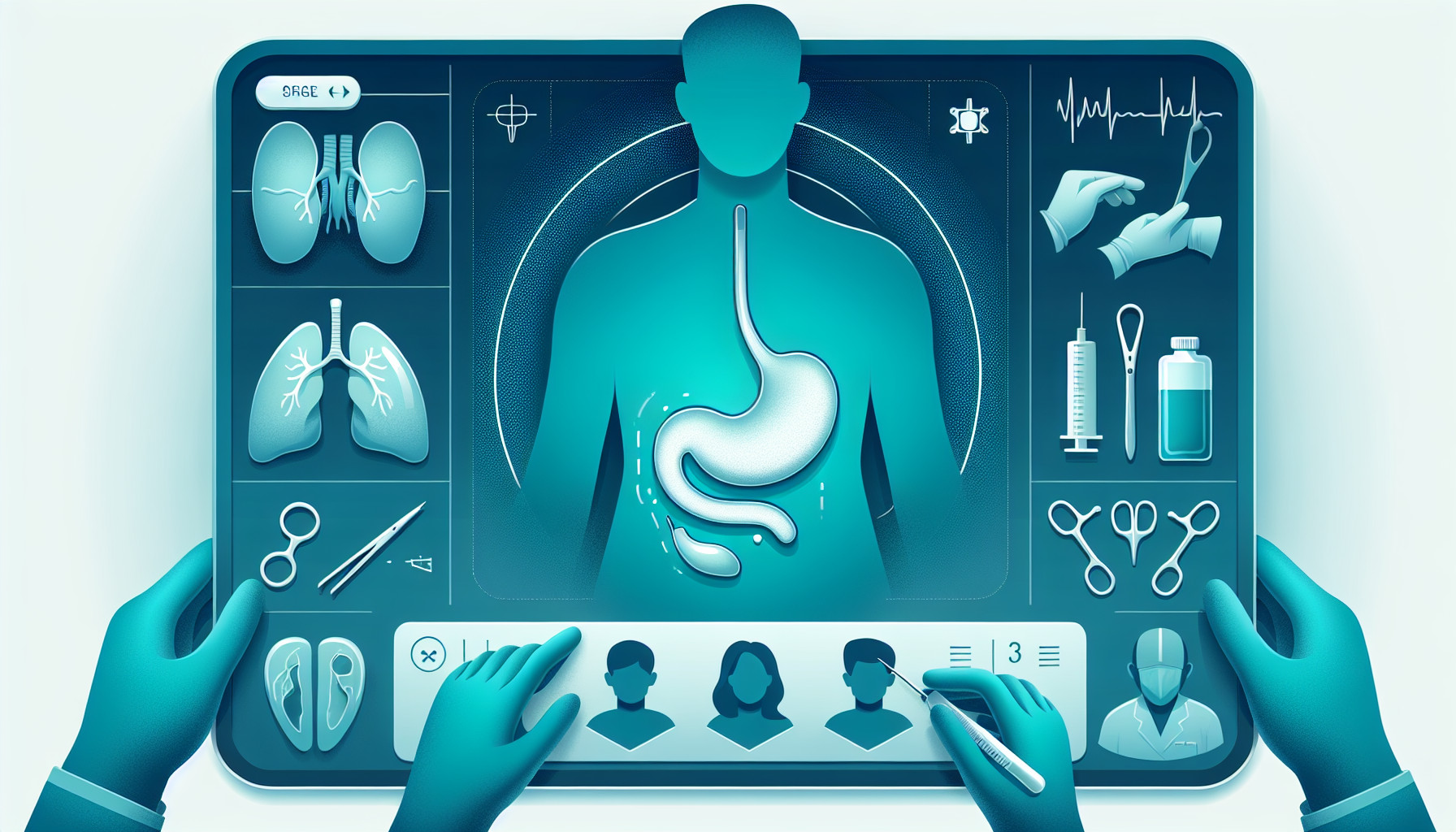Our Summary
This research paper discusses a study that aimed to predict the difficulty level of a cholecystectomy (gallbladder removal surgery) before it is performed. The study used a scale and found that the higher the pre-operation score, the more likely the surgery was to have complications or need to be converted to an open procedure. The researchers suggest using this scale for all patients planning to undergo gallbladder surgery, as it could help surgeons better prepare for the operation and inform patients about the potential risks. The scale showed good predictive ability, with a sensitivity, specificity, positive predictive value and negative predictive value of 75.15%, 88.31%, 87.32 and 76.83%, respectively.
FAQs
- What is the purpose of the study discussed in the research paper?
- How does the pre-operation score relate to the potential complications of a cholecystectomy?
- What are the predictive values of the scale used to predict the difficulty of a cholecystectomy?
Doctor’s Tip
A helpful tip a doctor might tell a patient about cholecystectomy is to carefully follow all pre-operative instructions provided, such as fasting guidelines and medication restrictions. Additionally, it is important to discuss any concerns or questions with your healthcare provider before the surgery to ensure you are well-informed and prepared for the procedure. After the surgery, it is crucial to follow post-operative care instructions, including proper wound care and dietary guidelines, to promote a smooth recovery.
Suitable For
Patients who are typically recommended cholecystectomy include those with symptomatic gallstones, such as those experiencing recurrent episodes of abdominal pain, nausea, and vomiting. Other indications for cholecystectomy include complications of gallstones, such as inflammation of the gallbladder (cholecystitis), blockage of the bile ducts (choledocholithiasis), and pancreatitis. Patients with large gallstones, gallbladder polyps, or a high risk of developing complications from gallstones are also candidates for cholecystectomy. Additionally, patients with a history of biliary colic, jaundice, or other gallbladder-related symptoms may be recommended for surgery to prevent future complications.
Timeline
Before Cholecystectomy:
- Patient experiences symptoms of gallbladder disease such as abdominal pain, bloating, nausea, and vomiting.
- Patient undergoes medical evaluation and diagnostic tests such as ultrasound or CT scan to confirm gallbladder disease.
- Surgeon determines that cholecystectomy is necessary to remove the diseased gallbladder.
- Patient is informed about the procedure, risks, and benefits of cholecystectomy.
- Patient undergoes pre-operative preparation including fasting and medication adjustments.
After Cholecystectomy:
- Patient undergoes cholecystectomy surgery either laparoscopically or through open surgery.
- Patient is monitored in the recovery room and may stay in the hospital for a day or two for observation.
- Patient experiences post-operative pain and discomfort, which is managed with pain medications.
- Patient is advised to follow a specific diet and activity restrictions to aid in recovery.
- Patient may experience temporary digestive issues such as diarrhea or bloating as the body adjusts to the absence of the gallbladder.
- Patient follows up with the surgeon for post-operative care and monitoring.
- Patient gradually resumes normal activities and diet as advised by the healthcare provider.
- Patient experiences relief from symptoms of gallbladder disease and improved quality of life.
What to Ask Your Doctor
- What is the reason for recommending a cholecystectomy in my case?
- What are the potential risks and complications associated with the surgery?
- Are there any alternative treatments or procedures that could be considered instead of cholecystectomy?
- How long is the recovery process expected to be, and what can I do to help speed up my recovery?
- Will I need to make any changes to my diet or lifestyle after the surgery?
- Will I need to take any medications or supplements post-surgery?
- What is the success rate of this surgery in patients with similar characteristics as mine?
- How experienced are you in performing cholecystectomies, and what is your success rate?
- What is the likelihood of needing a conversion to an open procedure during the surgery?
- Are there any specific factors in my case that could make the surgery more challenging or increase the risk of complications?
Reference
Authors: Ramírez-Giraldo C, Alvarado-Valenzuela K, Isaza-Restrepo A, Navarro-Alean J. Journal: Updates Surg. 2022 Jun;74(3):969-977. doi: 10.1007/s13304-021-01216-y. Epub 2022 Feb 4. PMID: 35122205
